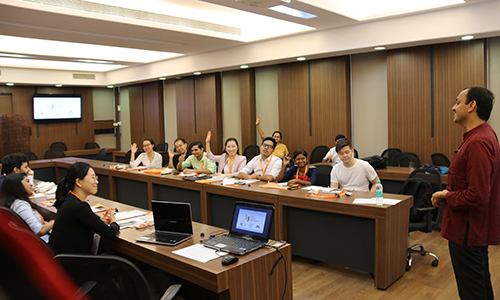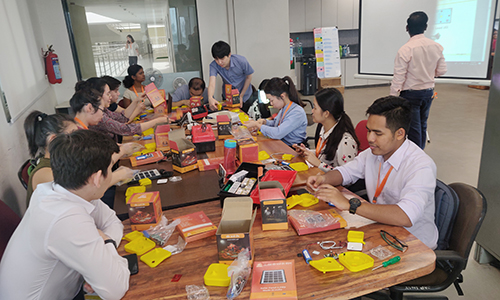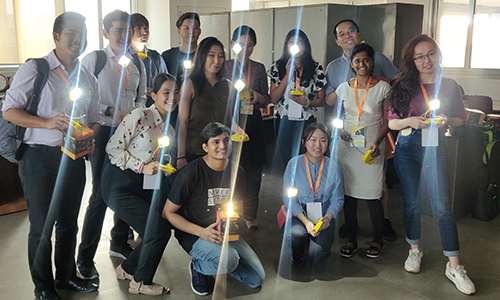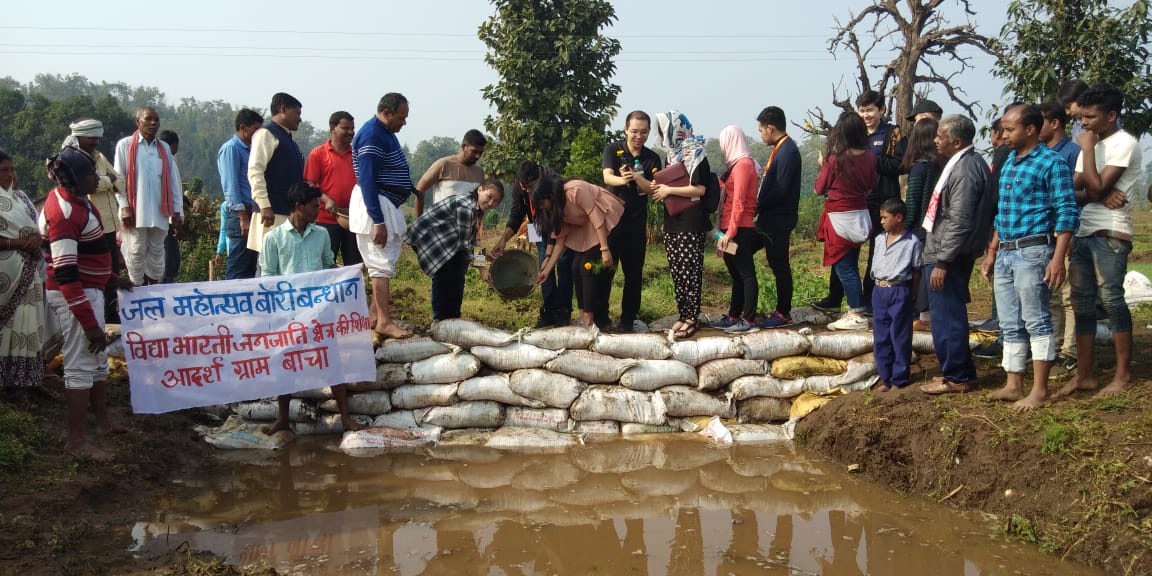The AUA Overseas Study Program "Sun, Society, Sustainability" (S3) was successfully hosted by the Indian Institute of Technology Bombay (IITB) from 9-15 December 2019 in Mumbai and Madhya Pradesh, India. The 7-day action packed program drew 14 students from 7 AUA member institutions to take part, including: Indian Institute of Technology Bombay, National University of Singapore, Nazarbayev University, Seoul National University, Tsinghua University, Universiti Malaya and The University of Tokyo. The program was organized by Solar Urja through Localization for Sustainability or SoULS, a flagship program of IIT Bombay, which has developed interventions, built on the foundation of localization, for providing clean, efficient, affordable and reliable energy access to the most rural households all across India.
On the first day of the program, student participants, program organizers and senior leaders of the SoULS team as well as the Dean of IITB's Office of International Relations, Prof. Swati Patankar, attended the opening ceremony of the program. After the welcoming addresses, Principal Investigator of the SoULS project Prof. Chetan Singh Solanki set the tone for the program by demonstrating the great challenges faced by global societies in terms of the oncoming climate crisis. He emphasized the importance of implementing long term, sustainable and impactful solutions - such as solar energy - thereby reducing the reliance on fossil fuels. Prof. Jayendran Venkateswaran, Principal Investigator of the SoULS project also delivered remarks to welcome students, highlighting the importance of contributions to the study of renewable energy from those of all disciplinary backgrounds. A key highlight of the opening ceremony was the "Pledge of Non Violence Towards the Environment", a pledge taken by all student participants to commit to protecting and serving the environment through conscious and concerted efforts. In the afternoon, students visited several key laboratories involved in the research and development of various aspects of solar energy technology.

A scene from the S3 opening ceremony
On the morning of day two, students had the opportunity to attend an inspiring lecture delivered by Prof. Diana Urge-Vorstaz of the Central European University and Vice Chair of the Intergovernmental Panel on Climate Change, who presented the current forecast of the climate crisis and available opportunities to keep the warming of global temperatures to under 2 degrees. In the afternoon, students had the opportunity to build their own solar study lamps from scratch. The solar study lamps project is a key initiative of the SoULS team, having already reached over 40,000 villages and 6.5 million households all across India, as they aim to provide a solar study lamp to every child in rural India as part of its 'Right to Light' mission. On the third day, students received a demonstration of Solar PV cook stoves, another initiative of the SoULS team.


Student participants before and after assembling the SoULS solar lamps
On days four to six, the students were based in Betul city in the state of Madhya Pradesh, where they met with local representatives of the SoULS team and the villagers, to see firsthand how the project is implemented at the local and ground level, and gain tangible insights into the broad impact of the initiative. On day four, students visited Bharat Bharti Vidya Samiti School (BBVS) in Betul, where the SoULS project installed the solar cook stove to cook food for school students. In the evening participants had the opportunity to experience some of the local culture as they paid a visit to the nearby Balajipuram Temple. Local media was also on site to report about the AUA students' visit and conduct a number of brief interviews with participants.
The following day, students participated in a water conservation program in Sonaghati, Betul and visited Bancha Village, considered a 'one of a kind' village, as it is the first in India where the entire village is using solar cook stoves to prepare their food. This revolution is the initiative of IITB and BBVS. On the final day, students explored some of the interesting monuments in Nagpur, like Zero Mile Stone, Reserve Bank of India and the Dragon Palace Temple. After spending three days immersed in the rural setting, students returned to the IITB campus. On the final day of the program, students embarked on a city tour of Mumbai before preparing to make their way home.

Students with local village residents during the field visit to Betel, Madhya Pradesh
Overall, the AUA program was a great success. Through the shared learning of pertinent topics of solar energy and climate change, cross cultural friendships and bonds have been built thereby strengthening mutual exchange and understanding across the Asian region.